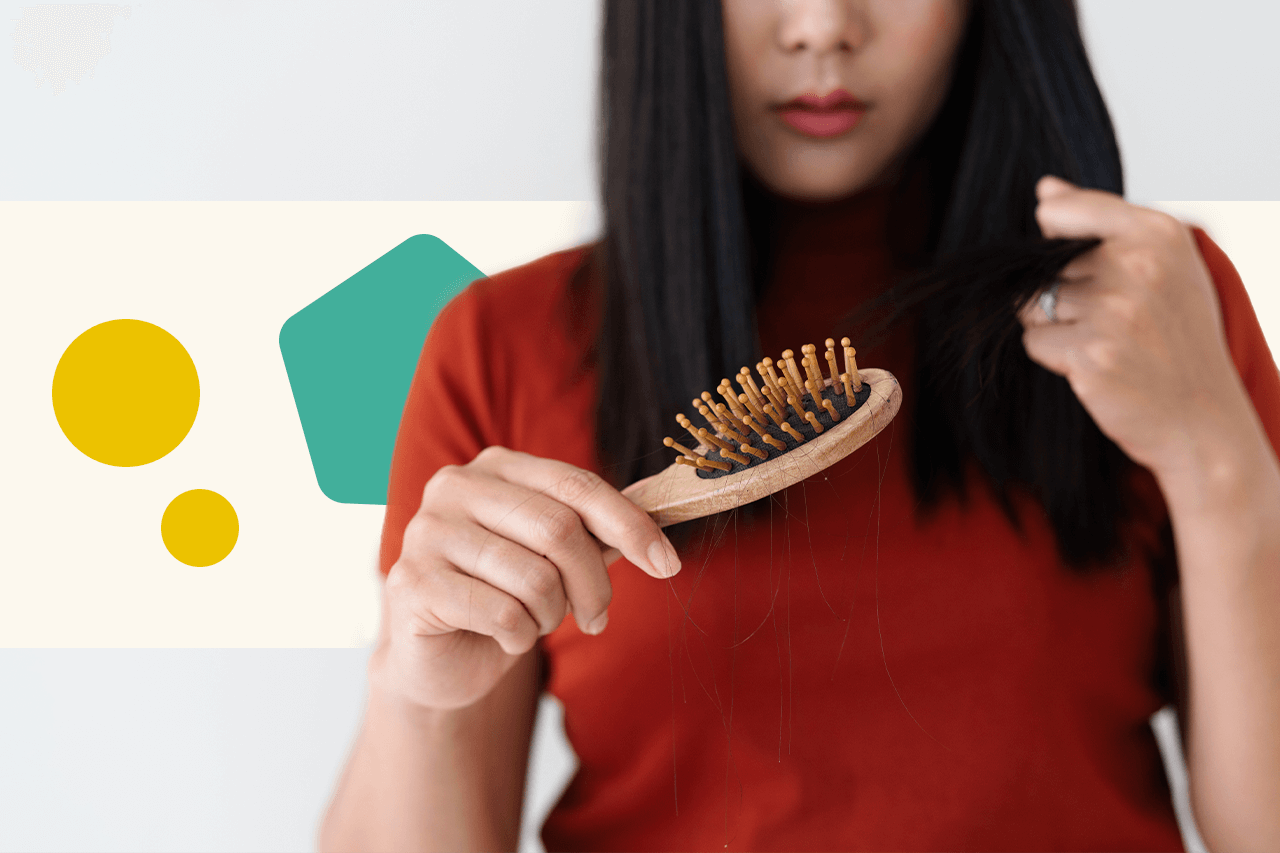
Body + Mind is reader-supported. We may earn an affiliate commission when you buy through some of the links on our site.
People have been using dry shampoo for hundreds of years. During the 15th century, people in Asia used clay powder to clean their hair. Then, during the Elizabethan era, when regular bathing was uncommon, women used the same powder to cleanse their hair of dirt and oil. British and American elites even used powders to deodorize and color their hair and wigs in the 18th century.
The dry shampoo you use today didn’t make its way into consumers’ hands until the 1940s. Even then, it came in a cardboard package that included an application mitt. At that point, you might have saved more time taking a shower and washing your hair.
Now, however, dry shampoo comes in an aerosol can for easy application, and you can find it on supermarket shelves worldwide. Consumers still rely on this handy product to reduce greasiness and add volume to their locks just as they did a century ago. You can even use it to extend the life of your blowout, keep bobby pins in place and conserve water if you’re earth-conscious.
Beauty brands would have you believe dry shampoo to be the solution to any bad hair day. After all, how could you argue with a product that simplifies your life? Well, it seems the price of convenience is higher than some people are willing to pay.
Regardless of how naturally dry or oily your scalp is, your hair will tend to look a bit greasy after a few showerless days. This phenomenon occurs because sebaceous glands in your scalp produce sebum, a waxy oil that protects your hair and skin from drying out. Some scientists also hypothesize that sebum may have antimicrobial properties or release pheromones.
While natural oils may benefit your scalp, the look of greasy hair can be unattractive. Using dry shampoo will help absorb sebum. However, some of the powder particles will remain on your hair and scalp even after you brush it out. After a few days, the powder will begin to trap bacteria and create buildup, resulting in pimples, cysts and, ultimately, hair loss. As the sores dry out and scab, they’ll fall off, taking strands of hair with them.
Even if you don’t suffer breakouts, sores or blisters, dry shampoo overuse can still cause hair loss. If you use it daily or more than the recommended amount, the powder can weigh down your hair follicles. This extra weight may halt hair growth and weaken strands, resulting in breakage. Many dry shampoos also contain alcohol, which can further dry out your hair shaft. These dry, cakey hairs will then clump together and fall out in large chunks.
Hair loss isn’t the only possible side effect of overusing dry shampoo. Most brands produce products that contain starch flour or talc, a substance that researchers have recently linked to ovarian cancer. More than 1,000 people have filed lawsuits against Johnson & Johnson for failing to warn women about the risks of talcum powder. Thus, you may be putting more than your hair at stake when you choose convenience over a wash.
However, most cases of ovarian cancer and dry shampoo involved women using the product every day for decades. Therefore, if you don’t use dry shampoo very often and feel that your hair and scalp are healthy, you can probably use dry shampoo without suffering any major side effects. As long as you use common sense, you shouldn’t experience hair loss — or cancer.
Still, it may be best to play it safe. After all, hair grows gradually, and you want to do what’s best for your mane. Of course, washing your hair is the best course of action. If you wish to avoid stripping your hair of moisture and oils, wash your hair less often or take cold showers. If your hair feels extra oily between washes, wear a hat, try a different style or make natural dry shampoo at home.
Making DIY dry shampoo may be the best way to prevent nasty chemicals in your hair and keep those strands on your scalp where they belong. One simple recipe entails mixing equal parts cornstarch and baking soda. Add a touch of cocoa powder if your hair is darker and a few drops of essential oils if you want to smell clean and fresh. Then, sprinkle it on your roots, comb your hair and go out and seize the day.